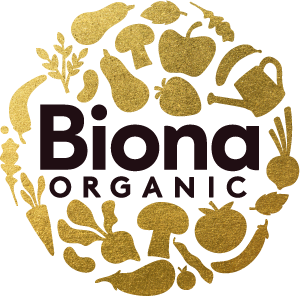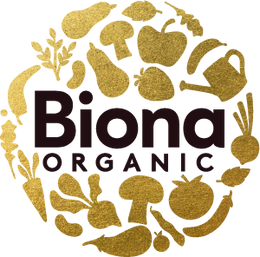Biona's Simple Steps To A Sustainable Kitchen
Environmental awareness is - quite rightly - on the rise (*cheers*). For those taking steps towards living more sustainably, there’s no better place to start than in the kitchen. We know that going green can seem daunting, so here are 5 simple tips to make your kitchen more sustainable.
Buy Organic
Choosing organic foods wherever possible instantly boosts your sustainability credentials. As well as preserving biodiversity of plants, animals and micro-organisms, organic farming creates less greenhouse gas and other pollution (1).
Organic food isn't sprayed with harmful chemicals, so it's also more nutrient-rich than its non-organic counterparts (2). Making simple swaps to some of your everyday staples is a great place to start. Explore some of our best-selling organic products here.
Choose Sustainable Storage
Fresh or leftover, you can prolong the life of your food with careful storage. Here’s how to avoid some kitchen storage sustainability pitfalls:
LOSE: Clingfilm. Forever. As a single-use plastic, it’s tough on the environment (before you ask, tin foil is actually worse! (3)). CHOOSE: Beeswax Wraps. They are made from fabric and natural beeswax and are washable, flexible and reusable, so they’ll also save you money in the long run! We love supporting local businesses like Cotswolds-based independent company The Beeswax Wrap Co.
LOSE: Plastic storage containers. They won’t last forever and inevitably become more plastic waste. Some plastic containers also contain chemicals such as BPA and phthalates, which are known to leach into foods and could be harmful (4). CHOOSE: glass or stainless steel. These are safe alternatives that have a much lower environmental impact and will last much longer. Because glass is a non-porous material, they keep your food fresher longer to help prevent food waste.
For bonus points, upcycle glass jars for leftovers and dried foods (they make for much prettier shelfies, too!).
Use Non-Toxic Cleaning Products
How clean are your cleaning products? Products that contain harsh chemicals such as ammonia and chlorine may seem to get your surfaces sparkling, but they aren't the best for our ecosystem. Nowadays, there are many green alternatives on the market. Or, it's just as easy to DIY using three magical ingredients: vinegar, bicarbonate of soda and lemon juice (try this blog for some recipes).
Reduce Food Waste
Did you know that the kitchen is the biggest culprit for waste generation in the average household? Food waste is a huge issue (we’re serious about it), but the good news is that you can drastically cut down your contribution by changing the way you approach food:
-
Shop mindfully: make a meal plan and buy only what you need and will use.
-
Cook from root-to-stem: veg peelings are great for stock, herb stalks make beautiful pesto and past-best veg, cores and ends whizz down to fabulous juice.
-
Organise: sorting your fridge regularly will help you keep on top of what’s in there. So, store your leftovers and perishables at the front so they don’t get forgotten!
-
Compost: Organic waste (including cardboard) can be composted, but, if you don’t have a garden, check if your local council has a food waste scheme.
Choose Recyclable Packaging
You can make a huge difference by buying ‘naked’ produce and choosing products packaged in recyclable materials where possible.
95% of Biona packaging is currently recyclable, and we’re actively seeking to increase that number. For one thing, our BPA-free canned Chickpeas, Chopped Tomatoes and Coconut Milk are all now available in plastic-free multipacks!
Are you ready to get greener in the kitchen? Let us know your #SustainableKitchenSwaps on Instagram! @bionaorganic
Sources









